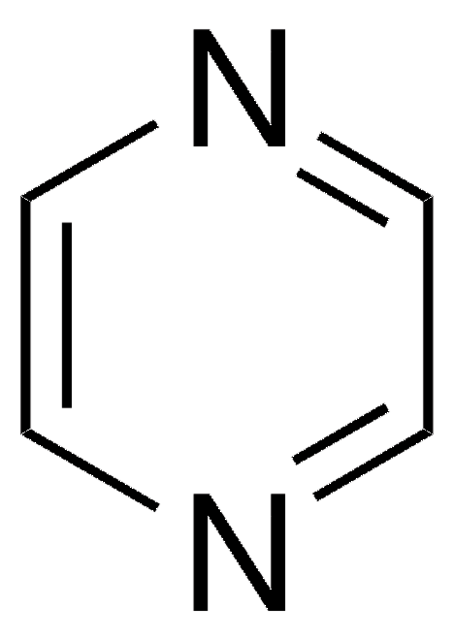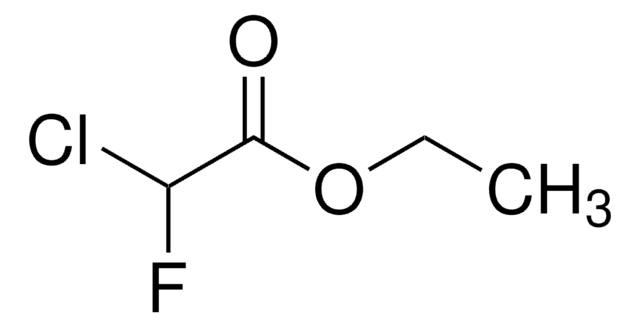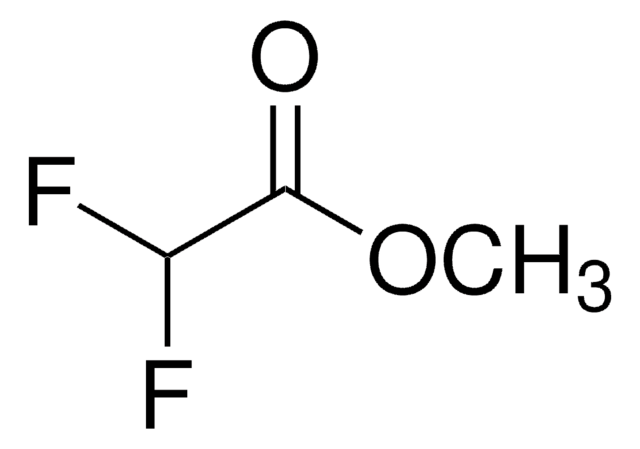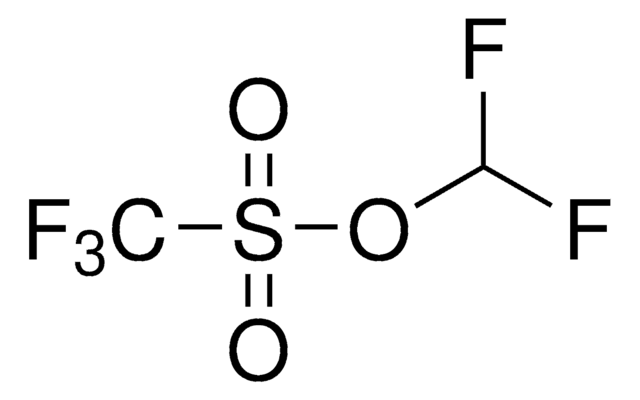374067
Sodium chlorodifluoroacetate
96%
Synonym(s):
Chlorodifluoroacetic acid sodium salt
Sign Into View Organizational & Contract Pricing
All Photos(1)
About This Item
Linear Formula:
ClCF2CO2Na
CAS Number:
Molecular Weight:
152.46
EC Number:
MDL number:
UNSPSC Code:
12352302
PubChem Substance ID:
NACRES:
NA.22
Assay:
96%
Recommended Products
Quality Level
Assay
96%
mp
196-198 °C (lit.)
functional group
chloro
fluoro
SMILES string
[Na+].[O-]C(=O)C(F)(F)Cl
InChI
1S/C2HClF2O2.Na/c3-2(4,5)1(6)7;/h(H,6,7);/q;+1/p-1
InChI key
MRTAVLDNYYEJHK-UHFFFAOYSA-M
Signal Word
Warning
Hazard Statements
Precautionary Statements
Hazard Classifications
Eye Irrit. 2 - Skin Irrit. 2 - STOT SE 3
Target Organs
Respiratory system
Storage Class Code
11 - Combustible Solids
WGK
WGK 3
Flash Point(F)
Not applicable
Flash Point(C)
Not applicable
Personal Protective Equipment
dust mask type N95 (US), Eyeshields, Gloves
Choose from one of the most recent versions:
Already Own This Product?
Find documentation for the products that you have recently purchased in the Document Library.
Customers Also Viewed
M L Hanson et al.
Environmental toxicology and chemistry, 20(12), 2758-2767 (2002-01-05)
Chlorodifluoroacetic acid (CDFA) is a novel haloacetic acid (HAA) and has been recently documented in aquatic systems. It is a suspected degradation product of the refrigerants 1,1,2-trichloro-1,1-difluoroethane (CFC-113) and 1-chloro-1,1-difluoroethane (HCFC-142b). Haloacetic acids can be phytotoxic, putatively acting through inhibition
M Zdanowska-Fraczek et al.
Solid state nuclear magnetic resonance, 6(2), 141-146 (1996-04-01)
The reorientation of CClF2 groups in N(CH3)4H(ClF2CCOO)2 has been studied using pulsed NQR and NMR techniques. The temperature dependence of both chlorine (35Cl) NQR and fluorine (19F) NMR spin-lattice relaxation has been measured T1Q of chlorine is attributed to the
Keith R Solomon et al.
Photochemical & photobiological sciences : Official journal of the European Photochemistry Association and the European Society for Photobiology, 2(1), 62-67 (2003-03-28)
Increased UV-B through stratospheric ozone depletion leads to an increased chemical activity in the lower atmosphere (the troposphere). The effect of stratospheric ozone depletion on tropospheric ozone is small (though significant) compared to the ozone generated anthropogenically in areas already
J W Harris et al.
Chemical research in toxicology, 4(2), 180-186 (1991-03-01)
1,2-Dichloro-1,1-difluoroethane (HCFC-132b) is a potential substitute for some ozone-depleting chlorofluorocarbons and a model for other 1,1,1,2-tetrahaloethanes under consideration as chlorofluorocarbon substitutes. Male Fischer 344 rats were given 10 mmol/kg HCFC-132b dissolved in corn oil by intraperitoneal injection. An NMR assay
Jian Zheng et al.
Chemical communications (Cambridge, England), 49(68), 7513-7515 (2013-07-19)
A key intermediate, difluoromethylene phosphobetaine, in the Wittig reaction of ClCF2CO2Na-Ph3P with aldehydes was synthesized and characterized, which confirmed the reaction mechanism. The decarboxylation of this stable intermediate was a convenient approach for Wittig difluroolefination. Its reactivity could be adjusted
Our team of scientists has experience in all areas of research including Life Science, Material Science, Chemical Synthesis, Chromatography, Analytical and many others.
Contact Technical Service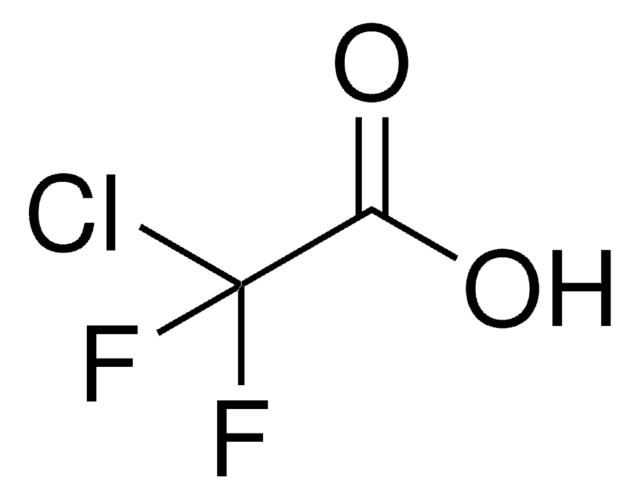
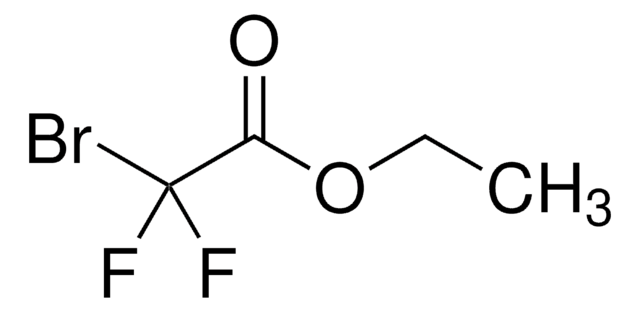
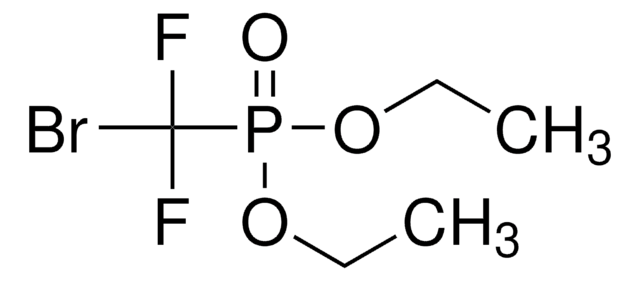


![1,8-Diazabicyclo[5.4.0]undec-7-ene 98%](/deepweb/assets/sigmaaldrich/product/structures/120/564/5b373e23-1624-489c-8efb-692de0f96ffb/640/5b373e23-1624-489c-8efb-692de0f96ffb.png)


